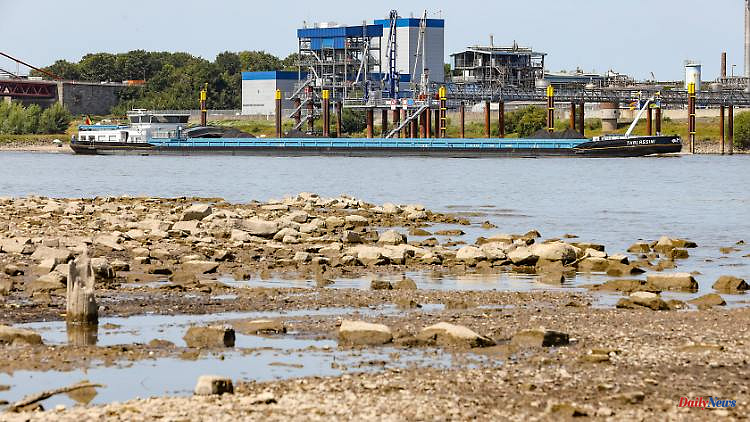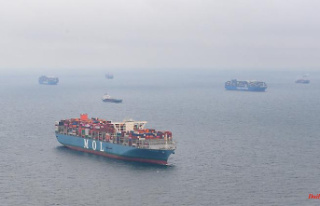The demand is extremely high, but it collides with the low water level: Due to the low water levels in the rivers, inland waterway skippers are only allowed to load half of their ships. And that where the demand for coal is increasing again due to the gas crisis. One consequence: prices are rising.
The drought is severely restricting the business of cargo ships on the Rhine and other rivers in Germany. "We are only allowed to transport about 50 percent of the volume that we could transport," said Roberto Spranzi, the board member of the German Transport Cooperative for inland waterways, in Duisburg. River levels are currently low. Due to the smaller amount of cargo, the ships are lighter and not as deep in the water. The capacities are reduced, but the demand is high.
"We're fully booked," says Spranzi. Examples of heavy cargo are chemicals, gravel and raw materials such as coal. Since Germany is increasingly relying on coal-fired power plants again because of the gas crisis, the demand for coal has risen significantly. The shipowners also notice this. From his point of view, the supply of cargo via ships is still guaranteed. But the situation is tense, especially since no major rainfall is in sight.
According to one assessment, there is no threat of a delivery stop - "it will be tight, but the ships will continue". Some of the inland waterway vessels that usually travel on German rivers are currently involved in the transport of Ukrainian grain in Europe. "That has noticeably reduced freight capacity in this country," says Spranzi, whose cooperative has more than 100 ships.
The Federal Association of German Inland Shipping (BDB), also based in Duisburg, speaks of an "enormously high demand for shipping space", for example for coal, containers and grain. This demand is now accumulating because of the grain transports and the restarting of the coal-fired power plants. "That's why it can happen that not every customer can be served to the extent that he wants," says association manager Jens Schwanen. This leads "to a certain aggravation of the situation, which is already the case due to the low water".
If barges are allowed to load less cargo than they can, they are usually not paid much less. "The lower discharge is compensated by the so-called small water surcharge," explains industry representative Spranzi. This surcharge is due at certain water levels - "and that largely compensates for the loss," he says. "For corporate customers, this means: They get fewer goods and they are more expensive."












